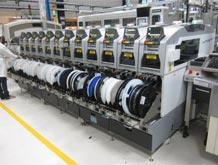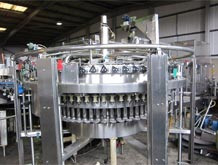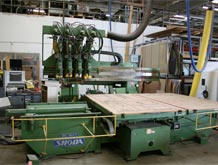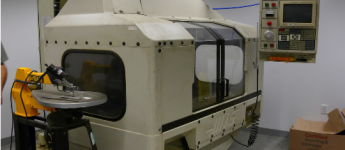
Kitmondo
01 May 2014
It was the Krays, Britain’s best loved psychopaths, who came up with the idea of Long Firm Fraud. Indeed, they became so synonymous with the scheme that they gave it their name – derived from the Firm through which they controlled much of London’s illegal activities during the 50’s and 60’s.
The premise was simple, but effective. Using a front man, they would set up a seemingly legitimate company and start doing business in the same way as any other self-respecting new company. They would open a bank account, get lines of credit, pay their bills and manage their account impeccably until, after a period of time, they had managed to get themselves a good reputation with their suppliers who would feel comfortable fulfilling larger and larger orders without demanding payment immediately.
Then, when the time was right, they would strike. Suddenly they would make an extremely large order which would set their suppliers eyes boggling. Then, after a day or so of frantic trading, they would close their business and vanish.
It was brilliant and simple and, even if the front man got caught, the Krays guaranteed silence with a mixture of carrot and stick. They would deposit large sums in a Swiss bank account ready for when their man was released; and if that didn’t work, they would ladle on large amounts of implied, and in some cases actual, violence.
The scam was so successful for the Firm that they gave their name to it and today it continues to net a new generation of criminals vast sums of money. Take the example of the British IT company which was taken for £3million in 2010 when it did business with a shadow company over a period of several months.
While in recent years distributors have tightened up their processes, the scam is like a virus and continually adapts to survive. To make their illusion more realistic, scammers might try adopting the persona of an existing company, often a dormant one, which they arm with fake accounts lodged at Companies house.
Smaller Companies such as Resellers Targeted
Criminals are also switching their focus to more vulnerable targets. If distributors are becoming tighter on their processes then the simple option is to shift the focus onto smaller independent resellers who may not be quite as advanced in their security.
Last year Target Components issued a warning to its reseller customers after one of its clients was defrauded to the tune of £20,000; they had been working with an apparently trustworthy company for a period of several months until, as is typical in long firm fraud cases, the company disappeared after placing a large order.
The hugely successful American series, The Sopranos, depicted in Episode 23 entitled, “The Bust Out”, how the Mafia bankrupts companies in order to recoup gambling debts owed by the proprietor of a sporting goods store using a form of long firm fraud as its modus operandi.
The secret is to remain vigilant and to have robust systems and procedures in place, even if you’ve been dealing with a company for a long period of time; especially if they suddenly put in a very large order. Check their trading history carefully and ask for trading references, always remembering to scrutinize the identity of those referees themselves.
Check the identities of the individuals running the businesses and go to any publicly available information sources to find out if they’ve been made bankrupt or barred from running a business in the past.
If, even after all that, if your organization is caught out, keep note of any correspondence with the company and report the case to the relevant authorities. The more information that is shared with crime prevention authorities regarding incidents of long firm fraud, the easier it will be to combat it.
Image Credit: Marke Clinger
















